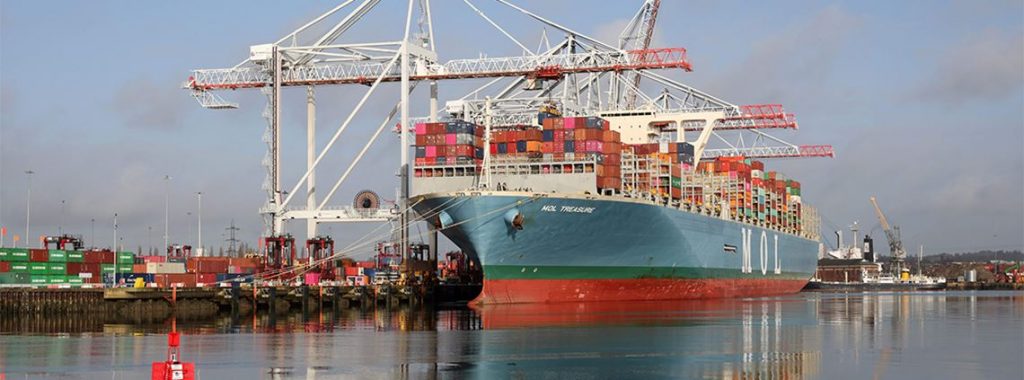Q&A: Everything you need to know about port disruption

Procurement professionals are facing challenges as they seek to mitigate supply chain risks caused by port disruptions across the world.
As firms report delayed deliveries and higher costs, the British Retail Consortium (BRC) and the Food and Drink Federation have written a letter to the the House of Commons International Trade Committee and Transport Select Committee calling for an inquiry into port disruption and the shipping market.
The letter highlighted port disruption impacts, including retailers and food and manufacturers experiencing “major challenges in building up stock for the Christmas period and for the end of the transition period at the end of December”. Shipping costs have risen 25% week-on-week, in one instance 170% year-on-year, while firms are also facing congestion charges from carriers. One food company has lost £1m in sales due to delays.
Helen Dickinson, chief executive at the BRC, warned firms “are in no position to absorb additional shipping costs” and an inquiry offered the “scrutiny needed to help get ports flowing freely again.”
Meanwhile, the IHS Markit/CIPS Flash UK Purchasing Managers’ Index found that “severe pressure” on manufacturing in December was linked to freight delays from port congestion.
As a result, around 45% of respondents reported longer wait times from suppliers, while critical shortages and stockpiling led to the sharpest rise of backlogged work in a decade.
Duncan Brock, group director at CIPS, said: “In the near term, supply chain managers identified some serious obstacles that could impede further progress and pull the sectors into recession again.
“Manufacturing companies were paying the price of goods shortages with the highest rise in cost inflation since June 2018 as shipping and commodity prices soared.”
1. What is causing the disruption at ports?
The key cause of disruptions at UK ports has largely been attributed to huge volumes of PPE shipped to the country at the height of the Covid-19 response in the summer. Container volumes have reportedly increased by up to 30% while workforce restrictions have led to tens of thousands of containers being stuck at ports or moved to temporary inland terminals.
David Fairnie, principal consultant, supply chain security at BSI, said: “Global alliance shipping groups (carrying holiday-related cargo) are not calling on UK ports for fear of delays/getting stuck and discharging in EU ports instead.
“The shipment is then either transshipped back to smaller UK ports from the discharged EU port or moved by increasingly scarce haulage trucks to be transferred via overstretched channel ports. In either case, logistics costs and delivery delay times have significantly increased.”
This has been compounded by firms looking to stockpile in advance of a final UK/EU trading decision. “These increased volumes and substantial delays in crossing and processing through UK logistics infrastructure are causing significant impacts to business,” he added.
2. Where is it happening?
In the UK, Felixstowe has been the most predominantly impacted port, with Southampton, London Gateway and Associated British Ports also citing congestion.
Alexi Cashen, CEO at logistics firm Elenteny Imports, said: “In October, New York and Oakland experienced delays due to congestion at the ports from a busier than expected summer months combined with a shortage of drayage carriers, and there was a delay in getting containers pulled from the ports.
“Australia experienced strikes in Sydney that caused ripple down effects on Australian/New Zealand shipments. South Africa experienced delays due to terminal operations slow down over Covid-19 (labour and cleaning closures). Vessels were queuing outside the port region awaiting berthing space, and some carriers were omitting port calls.
“Furthermore, the Federal Maritime Commission is now responding to numerous complaintsabout operations at the ports of Long Beach, Los Angeles, and New York/New Jersey by expanding its existing investigation with a supplement order.”
3. How long is it expected to last?
Last month, the Port of Felixstowe said disruption would last until “at least into December and possibly through into the New Year”, but logistics bodies warned that “high volumes remain and could persist for some months”.
In a letter to the governmentsignatories including the UK Chamber of Shipping, the British Ports Association, the Road Haulage Association, and Logistics UK, said: “The current situation has arisen in part from imbalances that accumulated over months. Reversing this accumulation is not an overnight task.
“Additionally, UK factors such as the imminent end of the EU transition period may well bring disruption, at least in the short term – an area where more urgent work is required and where container movement has until very recently received little attention in the government’s planning.”
Cashen added: “The situation is expected to last at least until the end of Q1 2021. The challenges will continue as the major shipping lines are all warning of continued container shortages and ongoing port disruptions that will affect the logistics supply chain.”
4. Should I be looking for alternative routes?
Cashen said: “We are seeing delays across other shipping alternatives. Pandemic-related LTL [less than truckload] trucking is experiencing long delays, and related issues may be resurfacing as Covid-19 surges in the US and container volumes soar.
“For example, capacity from major truckloads is completely utilised, with California broker boards showing one truck available for every 12 loads, and nationally – one truck available for every seven loads. This causes significant delays across the United States.”
Some firms may decide to look at air freight as an alternative. Air Charter Service (ACS) has seen an increase in enquiries from firms ahead of the end of the Brexit transition period on 1 January 2021.
Justin Bowman, ACS chief executive, told Sky News: “We’ve had nearly 100 inquiries already from companies looking to put standby aircraft in place, and the sectors that currently have asked us are pharmaceuticals, aeronautical or automotive, some oil and gas.”
5. Should I expect to pay more for shipping?
Firms have expressed concerns that delays at UK ports have increased shipping prices.
Ryan Clark, director of Westbound Logistics Services, told the BBC as shipping orders into the UK have surged, the unloading time for vessels has increased, making congestion problems worse.
“The increase in freight is either creating more expensive prices for the consumer, or unsustainability for businesses that will be forced to close where the onward price cannot be increased,” he said.
Adam Russell, who imports home appliances such as heaters and air conditioners for One Retail Group, told the BBC: “We used to pay $2,000 to ship a 40-ft container to the UK, now we’re paying at least $8,000 up to $10,000.
“Ultimately that means we’re going to have to stop importing or we’re going to have to pass that on to the consumer.”

